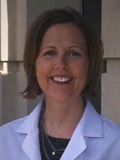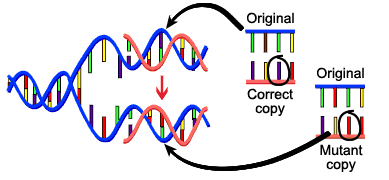by Kimberly S. Moon, MD
Beyond the Headlines: Paternal Age

Read any news headlines linking older paternal age to an increased risk of diseases in children including autism and schizophrenia? So have we. But the headlines don’t always tell the entire story. So what’s this all about? Should young men who are not ready for parenthood store sperm for later use to avoid putting their future children at risk? Before running out to the nearest sperm bank, let’s take a closer look at the facts. The interest in this topic was initially sparked by a high-profile study published in Nature, one of the most highly respected scientific journals in the world.
The study said that from one generation to the next there are on average 60 new mutations in the genome. We are talking about new small changes in the building blocks that make up our DNA. These are not part of the parent’s genetic makeup but rather mistakes that occur only in the production of eggs, sperm or embryos. The study also showed that the age of the father at the time of conception is the dominant factor in determining the number of these new mutations in the child.
The theory linking increased mutations to paternal age is not all that new. The idea was first suggested in 1912 when a scientist (Weinberg for all of you science history buffs) noticed that a form of dwarfism called “achondroplasia” was more common in last-born children.
Study Shows Difference in Chromosomes Among Generations
This study was the first to provide direct evidence to support this theory by measuring differences in chromosomes between parents and kids. And here is where it gets interesting – the study also found that the number of mutations increases dramatically with the father’s age. For example, a 20-year-old father transmits around 25 new mutations through his sperm while a 40-year-old father transmits around 65 mutations. In other words, there are about 2 additional mutations per additional year of paternal age from approximately the age of 20 to 45 years of age.
Mothers also contribute to new mutations, but that number stays constant at around 14, regardless of age.

Why Are Eggs So Different From Sperm?
Egg-producing cells divide several times and then remain quiet from birth until ovulation when the cells resume division. Sperm-producing cells are constantly dividing, and each cell division carries the possibility of introducing errors, or mutations.
It’s important to remember that all individuals have new mutations in their genome at birth. Few, if any, of those mutations are likely to have any impact on health. More importantly, mutations are a very important part of the natural process of diversity and evolution. Think Darwin and his finches.
The Bottom Line
How did the media jump to the headline “Autism Risk Rises with Fathers’ Age”? In the Nature article, the authors conjectured that since the number of new mutations in sperm increases with a man’s age, the chance that a child could have a harmful mutation that could lead to autism or schizophrenia must increase with age as well. When they looked at the available data on kids with autism or schizophrenia, however, it did not support this theory. Remember there is a big difference between association and causation.
So while there are an increased number of small new mutations in kids of older fathers, there is no proof, as yet, of a direct link between these mutations and specific diseases. Here at Shady Grove Fertility our interest is piqued, but based on this study, there is no firm data to change how we counsel men on an increased risk of autism or schizophrenia with advancing age.
Remember, there is often more to the story than the headline. If you have questions about other healthcare headlines, we are here to help clear things up.
If you are been trying to conceive without success and would like more information or to schedule an appointment with one of the Shady Grove Fertility physicians, please speak with one of our New Patient Liaisons at 877-971-7755.





